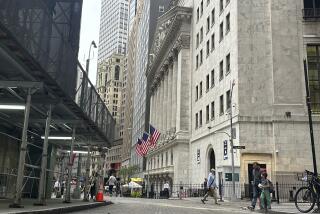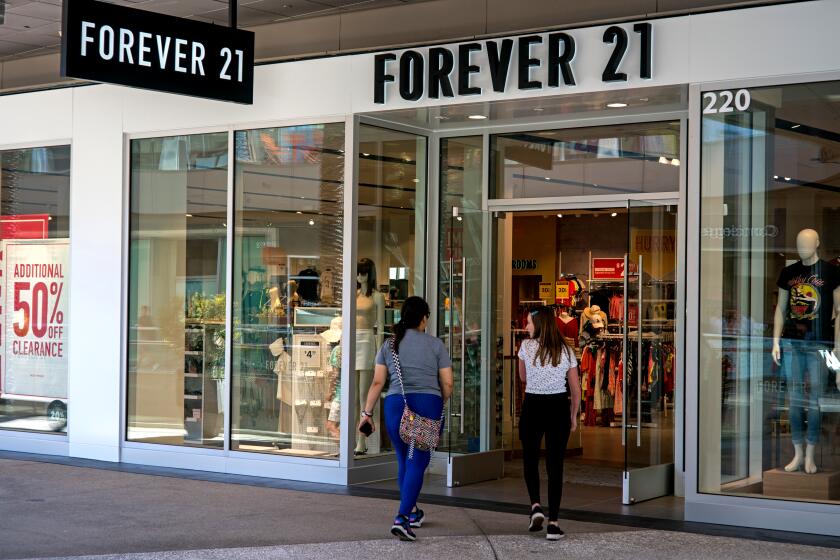Dow Jones hits 13,000 but falls back a bit at close
- Share via
This post has been corrected, as indicated below.
The Dow Jones industrial average crested 13,000 points for the first time since before the financial crisis, but failed to reach the milestone at Tuesday’s close.
The blue chip index’s latest surge has been driven by a stream of evidence signaling that the U.S. economy is on the mend. The Dow has risen 20% since Oct. 3.
The Dow first closed above 13,000 in 2007, and reached a peak of 14,164.53 in October of that year. The market was then roiled by the collapse of Lehman Brothers as the financial crisis punished global stock markets.
“The fact that we’re hitting 13,000 means that the old high of Dow 14,200 is within reach,” said Tom Lee, chief U.S. equity strategist at J.P. Morgan. “I think more people are going to be talking about the fact that this is a significant bull market.”
The milestone reached Tuesday came after European leaders agreed to give Greece a $170-billion aid package in exchange for sweeping new cuts to the Greek budget. The deal is designed to give Greece continued access to the international bond market, but there are still big questions about how it will be carried out.
A confidential analysis of the deal written by analysts at the International Monetary Fund, European Central Bank, and European Commission cast doubt on the debt deal. The memo, first published by Reuters, noted: “Given the risks, the Greek program may thus remain accident-prone, with questions about sustainability hanging over it.”
The Dow bounced around on Tuesday morning, first entering negative territory before crossing 13,000 twice, reaching the day’s high at 13,005.04. It finished up 15.82 points, or 0.12%, at 12,965.69.
Gains made during the morning were cut when the price of crude oil hit a nine-month high and Wal-Mart missed earnings expectations as the low price retailer suffered from thin margins.
“You have these conflicting signals,” said Larry Palmer, a managing director in private wealth management for Morgan Stanley Smith Barney. “There was the Greek bailout, so that pushed the market higher. Then we’re getting to a point where people are starting to talk in the marketplace about $5 gasoline and you had a big miss with Wal-Mart on earnings.”
U.S. markets were closed Monday for Presidents Day. The Standard & Poor’s 500 index notched its own milestone Tuesday morning by rising above its highest closing point since 2008. The index was up .98 points, or 0.07%, to 1,362.21.
The technology-heavy Nasdaq composite fell 3.21 points, or 0.11%, to 2,948.57.
The stock market’s recent climb has caught many investors off-guard, especially since many of last year’s problems are lingering. In addition to the continuing concerns about Europe’s debt crisis, there is fear that corporate earnings and the overall U.S. economy may still weaken.
[For the record, 4:25 p.m. Feb. 21: An earlier version of this post said the Dow first closed above 13,000 in 2008. It shoud have said 2007.]
ALSO:
AFL-CIO leader goes on the offensive
European leaders approve $170-billion bailout
Surging gasoline prices threaten economic recovery
More to Read
Inside the business of entertainment
The Wide Shot brings you news, analysis and insights on everything from streaming wars to production — and what it all means for the future.
You may occasionally receive promotional content from the Los Angeles Times.










